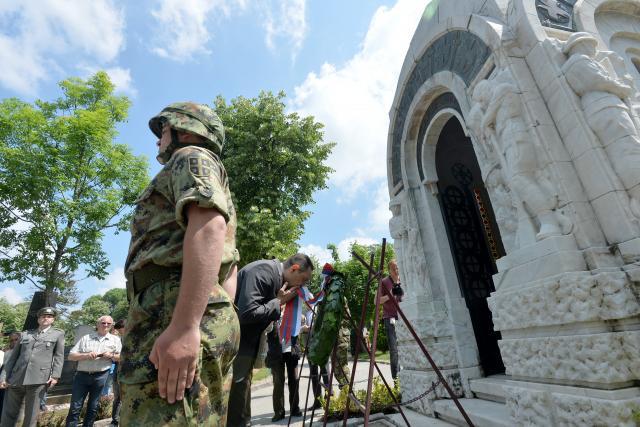Jugoslavija
pre 8 godina
Yes, there is a mountain in the province of Alberta named after Vojvoda Putnik. But let's not forget the other Generals, Vojvoda Stepa Stepanovic, Zivojin Misic, Petar Bojovic, Pavle Juricic. For two years they held the Austro-Hungarian empire over insurmountable odds.
Prince Alexander Karadjeordjevic was also fighting in the front lines leading the cavalry.
However, the greatest speech and heroism was exhibited when Belgrade apparently fell to Austro-Hungary in June 1915. King Peter I, who was very ill asked his guards to put on his full military regalia. He stood at the old palace balcony, his voice could barely be heard. He said to his people, I release you from your duty to King and Country. You are free to choose your destiny. However, I stay here in Belgrade with my family to fight on. Next day, on Vidovdan, June 30, 2015 Belgrade was relieved and the Austro-Hungarian army was driven back across the Sava back to Vienna leaving countless of weapons behind.
http://babamim.com/wwi_serbian_generals



4 Komentari
Sortiraj po: